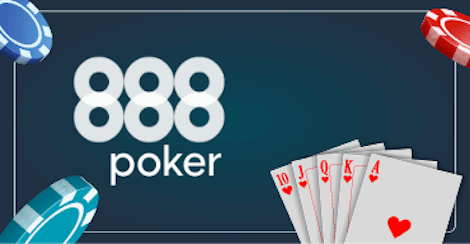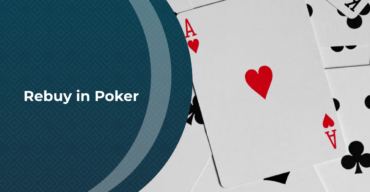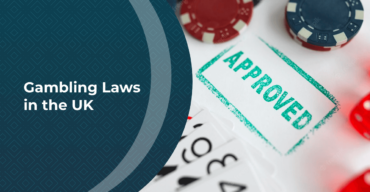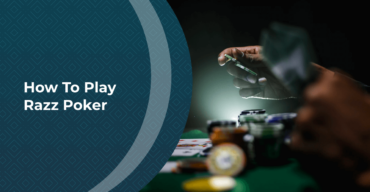Poker is a fun game to play with friends, but it can get fiercely competitive at times. To up your game, you’ll need some tips’ n’ tricks from the pros. Or at least some advice from our card game enthusiasts here at Pokersites. If you’ve ever wanted to learn how to be good at poker, you’re in the right place.
1. Poker Basics: Don’t Lean on Your Gut Feeling
This is not a “Poker for dummies” guide; we assume you already know the basics of the game and the importance of thinking strategically. When considering an opponent’s hand, make sure to think outside of the box; think ranges, not hands. Players don’t have a specific hand in poker; they have a range of possibilities that will ultimately end in one particular hand.
Instead of the gut feeling that may or may not deceive you, base your poker strategy on know-how. When you focus on your opponent’s ranges instead of hands while calculating pot odds, you’ll be able to understand the game better and foresee the odds.
2. Bluffing Essentials: Don’t Overdo It
So what is the one skill that will take your poker game to the next level? Bluffing. First of all, when you play poker, practice paying attention to your opponents’ cards and trying to predict their next moves. For example, if they bet after the flop, that might be a sign of a strong hand, while checking might signal weakness.
How is it possible to be good at poker bluffing, you might ask yourself? Playing poker is a mind game, and bluffing strategies can play a pivotal role in your success. However, bluffing too much when you have weak or mediocre hands will only make it worse. Resort to the so-called semi-bluffing method instead.
With semi-bluffing, players bet after the flop or turn, hoping that they are not called. If they are, some outs could still give them the best hand by the river phase. Let’s hope no one is going to foil your strategy.
3. Fortune Favors the Brave
Here are some straightforward poker tips and tricks: In the immortal words of Del Boy: “He who dares wins.” Don’t play with a fear of losing, and don’t be afraid to make big bets. A passive approach won’t get you very far; your game will become too cautious and predictable.
Play a smaller number of strong and speculative hands instead, and take on tight and aggressive tactics. Don’t be afraid to call or bet your chips. Your opponents will be taken by surprise and probably won’t judge the strength of your cards as easily.
4. Open Limping During the Pre-Flop Is a Big No-No
Every poker guide out there will typically warn you against this type of suicidal play. If you want to know how to be good at playing poker, avoid open limping in the pre-flop stage. If you’re the first player to enter the pot by calling instead of raising during the first betting round, things will likely go south for you.
An opening limp implies that you have a weak hand and gives enticing pot odds to the other players. Having said that, not all limping in the pre-flop stage is bad. Those who practice poker know that over-limping (limping after someone has already done it in the pre-flop stage) can be a good move. You’ll get decent pot odds and hopefully a good combo during the flop, all without investing a lot of money on a weak starting hand.
5. All Eyes on the Big Blind
Learning how to be good at poker is not something that you can simply read up on from some random poker tutorial and pick up instantly. There is definitely a learning curve involved, and you have many tactics to consider at every stage of the game. If you’ve already gotten a Big Blind, then call in the pre-flop phase. Texas Hold ‘em is a poker game that often employs this play because it gives excellent pot odds from the get-go.
The Big Blind makes you look self-confident and wards off aggressive raisers. But don’t play it with every hand, especially if your cards are nothing to write home about. Many Texas hold’em tips will tell you to defend your Big Blind aggressively only when you have good chances of winning.
6. Know When To Hold ’Em and When To Fold ’Em
What makes the difference between a good and a bad poker player? A good player knows when to fold. To lay down a good hand when you know you’re beaten is a true art in poker. There aren’t any poker rules regarding this move; it’s a matter of intuition and experience.
When deciding between calling and folding, do the latter; those who have a lot of experience up their sleeve know that calling in the wrong situation can lead to disaster. It would be great to write down the details of the hand when you fold and study them later.
How to be good at online poker?
With the COVID-19 pandemic only recently starting to show signs of retreating, the craze for online poker has been increasing across the UK. Online poker venues are primarily oriented towards recreational players, so don’t expect a very high standard of play. This makes them great for new players who want to brush up on their skills before hitting tougher competition. That being said, a good online poker strategy is still needed to win, especially if you’re unlucky enough to run into veteran players just having some fun online.
Be patient, as online sessions can be pretty long sometimes. Keep it simple. There’s no need to bluff a lot (and it’s a lot harder to do online), but always get the maximum value from your made hands. If you want to know how to be good at poker online, start with low-stakes and single-table sessions to familiarize yourself with all the nuances of the game. Texas Hold‘em is the most popular variant, so you’ll probably want to brush up your Hold’em skills first. Remember to start betting with smaller amounts of money, as online sessions can last a long time, but the individual rounds tend to go by very quickly.
FAQ
- How do I improve my poker skills?
Study the rules thoroughly, make sure to play aggressively, and don’t overdo bluffing or limp in pre-flop. Defend your Big Blind with the right hands, and know when to fold, as that can make all the difference.
- Is poker skill or luck?
Knowing how to be good at poker requires accepting that luck plays a significant role in the game. That being said, it is only relevant during the stages when the initial hands and the community cards are being dealt. What you do with those cards, on the other hand, is a matter of pure skill.
- What makes a good poker player?
As poker is a mind game, the combination of bluffing, mental discipline, and well-calculated strategies are all key to becoming a good player. Constant practice and learning to read your opponents are also crucial to your success at the game.
- Can poker make you rich?
Yes, it can. However, there isn’t a poker tutorial out there that’ll make you Scrooge McDuck right away. Learning how to be good at poker is the first step, but earning a fortune is a long process that starts with low-stake tournaments and amateur cash games.
- How do you win poker every time?
There are almost zero chances for winning a poker game every time, even if you have great hands throughout the session. Keep practicing, get some tips and tricks, up your game as much as you can, and learn how to bluff with style. Master the art of both folding and raising at the right time, and you’ll be well on your way to winning more consistently. Just forget about the 100% win rate – it’s a myth.





